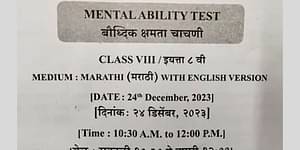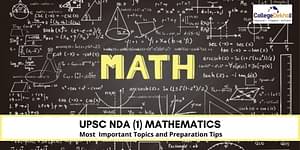M.Ed Career Opportunities
M.Ed Jobs Overview
A Master of Education (M.Ed) degree offers a diverse range of job opportunities and significant future potential in India's education sector. Graduates with an M.Ed can venture into various roles such as educational leadership, curriculum development, educational consulting, academic coordination, and teaching at higher education institutions.
With the ongoing emphasis on educational reform and quality enhancement in India, MEd holders can contribute to policy-making, educational research, and the implementation of innovative teaching methodologies. They can excel as school principals, education administrators, or training specialists in educational organizations. The demand for skilled educators who can design and implement effective teaching strategies is continuously growing, enhancing the career prospects for M Ed graduates.
Furthermore, the rise of online education and digital learning platforms has opened up opportunities for M.Ed holders in instructional design and e-learning development. They can create engaging and effective digital content to cater to the evolving educational landscape.
In the long run, as India strives to improve its education system and bridge the skill gap, M. Ed professionals will play a pivotal role in shaping the future of education. They can contribute to elevating the overall quality of education, addressing learning challenges, and fostering a culture of continuous improvement. To fully realize the potential of an M.Ed degree, individuals should remain adaptable, keep up with industry trends, and consistently upgrade their skills to align with the dynamic needs of the education sector.
Table of Contents
M.Ed Jobs Highlights
Here's a table highlighting major aspects of job opportunities after completing a Master of Education (M.Ed) degree:
Aspects | Description |
|---|---|
| Roles | Educational Leadership, Curriculum Development, Academic Coordination, Educational Consulting, Teaching at Higher Education Institutions, Online Instructional Design, Education Administration, Training Specialists. |
| Scope | Abundant opportunities due to educational reform, digital learning growth, and skill development emphasis. |
| Sector | Education institutions (schools, colleges, universities), Government and Non-Government Organizations, E-learning Platforms, Education Consultancies. |
| Skill Enhancement | M.Ed holders can enhance skills in curriculum design, educational technology, pedagogical innovation, research methodologies, assessment strategies. |
| Policy & Research | Involvement in educational policy-making, educational research, addressing learning challenges, contributing to improving teaching methods. |
| Leadership Roles | School Principals, Education Administrators, Department Heads, Academic Coordinators, Educational Managers. |
| Digital Learning | Opportunities in designing online courses, creating e-learning content, instructional design for virtual classrooms. |
| Professional Growth | Potential for career advancement, especially with continuous learning, specialization, and keeping up with educational trends. |
| Innovation | Creating and implementing innovative teaching methods, contributing to education quality enhancement. |
| Impact | Contributing to shaping the future of education, addressing societal needs, fostering skill development. |
Remember that the scope and opportunities can vary based on individual skills, interests, and the specific education landscape of the region.
Top M.Ed Job Profiles
Here are some popular job profiles for individuals with a Master of Education (M.Ed) degree in India:
Educational Coordinator: Responsible for developing and implementing curricula, overseeing teaching methodologies, and coordinating academic programs within educational institutions.
School Principal: In charge of the overall administration, management, and strategic development of a school, ensuring a conducive learning environment and academic excellence.
Curriculum Developer: Designs and updates educational curricula, aligning them with educational standards, learning outcomes, and innovative teaching approaches.
Educational Consultant: Offers expert advice to educational institutions, government bodies, and private organizations on curriculum design, educational policies, and improving teaching practices.
Education Administrator: Manages the day-to-day operations of educational institutions, handles administrative tasks, budgeting, and ensures efficient functioning.
Instructional Designer: Develops engaging and effective instructional materials for both traditional and online learning platforms, incorporating multimedia and technology.
Academic Coordinator: Coordinates and enhances academic activities, facilitates teacher training, monitors student progress, and ensures a well-rounded educational experience.
Training Specialist: Designs and conducts professional development workshops and training sessions for educators to enhance their teaching skills and keep up with evolving pedagogical practices.
Higher Education Lecturer/ Professor: Teaches at colleges and universities, imparting specialized knowledge in education theory, research methodologies, and pedagogical techniques.
E-Learning Developer: Creates digital learning content, including online courses, educational videos, and interactive modules for e-learning platforms.
Educational Researcher: Conducts research on educational trends, learning outcomes, and teaching methodologies to contribute to evidence-based educational improvements.
Education Policy Analyst: Analyzes educational policies, proposes reforms, and participates in discussions to shape educational policies at various levels.
Special Education Coordinator: Focuses on designing and implementing strategies for students with special needs, ensuring inclusive education and support systems.
Career Counselor: Assists students in making informed career choices, providing guidance on educational pathways and aligning skills with career goals.
Education Entrepreneur: Creates and manages educational startups, innovative learning platforms, or coaching centers, aiming to address specific educational needs.
These profiles offer a glimpse into the diverse range of opportunities for M. Ed graduates in India's evolving education landscape.
Top Academic Courses To Pursue After M.Ed
Here are some popular academic courses that Indian students often pursue after completing their Master of Education (M.Ed) degree:
PhD in Education: Many M. Ed graduates opt for doctoral studies to deepen their expertise in education research, contribute to the field's knowledge, and potentially pursue careers in academia or advanced research positions.
Master's in Educational Leadership: This program focuses on developing leadership skills for educational administrators, school principals, and other roles in education management.
Master's in Curriculum and Instruction: This degree emphasizes curriculum design, instructional strategies, and pedagogical methods, enhancing educators' ability to create effective learning experiences.
Master's in Educational Technology: With the rise of digital learning, this program equips graduates with skills to integrate technology into education, design online courses, and use educational tools effectively.
Master's in Special Education: This program focuses on inclusive education, addressing the needs of students with disabilities, and providing specialized teaching methods for diverse learners.
Master's in Counseling Psychology: For those interested in educational counseling, this program provides training to support students' emotional well-being, career guidance, and academic success.
Master's in School Psychology: This degree prepares graduates to work as school psychologists, offering psychological assessments, interventions, and support for students' mental health.
Master's in Educational Research: For individuals interested in educational research and data analysis, this program offers advanced training in research methodologies and statistical techniques.
Master's in Higher Education Administration: Geared towards those aspiring to work in university administration, this program covers higher education policies, management, and student affairs.
Diploma in Education Management: This program focuses on developing administrative and management skills specifically for educational institutions, suitable for those aiming for leadership roles.
Diploma in Online Teaching and E-Learning: Given the increasing demand for online education, this diploma equips educators with skills for effective online teaching and curriculum development.
Certificate Courses in Assessment and Evaluation: These short-term courses provide educators with insights into designing fair and accurate assessments and analyzing student performance data.
Certificate in Language Teaching: Ideal for educators interested in language instruction, this program covers teaching methodologies, curriculum design, and language acquisition theories.
Certificate in Special Needs Education: Offers training in catering to the needs of students with disabilities, enhancing educators' ability to create inclusive learning environments.
These post-M.Ed courses allow Indian educators to specialize, deepen their knowledge, and expand their career opportunities within the diverse field of education.
Career Opportunities After M.Ed
M.Ed graduates have a wide range of career opportunities across various industries that prioritize education, training, and skill development. Some of the industries that hire M. Ed graduates include:
Education Institutions: Schools, colleges, universities, and educational organizations hire M Ed graduates as teachers, curriculum developers, academic coordinators, school principals, and education administrators.
E-Learning Platforms: With the growth of online education, M. Ed graduates can work as instructional designers, content creators, and course developers for e-learning platforms.
Government and Non-Government Organizations: M.Ed graduates are sought after for roles in education policy analysis, program development, and implementation in governmental and non-governmental organizations focused on education and skill development.
Educational Consultancies: Consulting firms specializing in educational reform, curriculum design, and pedagogical training often hire M Ed graduates to provide expert advice to educational institutions and clients.
Training and Development Companies: Corporate training firms hire M. Ed graduates to design and deliver training programs, workshops, and professional development sessions for employees.
Publishing Houses: Publishers of educational materials and textbooks look for M Ed graduates to develop content, review educational resources, and contribute to curriculum-aligned materials.
Educational Technology Companies: EdTech companies hire M.Ed graduates for roles such as instructional designers, educational content creators, and product managers to develop innovative learning solutions.
Research Organizations: Institutions engaged in educational research hire M. Ed graduates to conduct studies, analyze data, and contribute to the advancement of education-related research.
Language Institutes: Language teaching centers and institutes hire M.Ed graduates for language instruction, curriculum development, and language education program management.
Special Needs Education Centers: Organizations catering to students with special needs hire M.Ed graduates as special education teachers, counselors, and coordinators.
Government Education Departments: State and central education departments offer roles in curriculum planning, policy analysis, and educational administration to M Ed graduates.
NGOs and Social Enterprises: Organizations focused on educational equity, skill development, and community education often hire M Ed graduates for program management and training roles.
Career Counseling Centers: M.Ed graduates can work as career counselors, helping students and professionals make informed career decisions and develop educational pathways.
Private Coaching Centers: Private tutoring centers hire M.Ed graduates to provide academic support and coaching in various subjects.
Educational Content Creation: Content creation companies hire M.Ed graduates to develop educational videos, podcasts, blogs, and other content for learning platforms.
These industries offer diverse opportunities for M. Ed graduates to contribute to education, training, and skill enhancement, making a meaningful impact on individuals and communities.
Top Companies Hiring M.Ed Graduates
Several top companies and organizations value the expertise of M. Ed graduates and frequently hire them for various roles in education, training, and development. Here are some of the prominent companies that often hire M.Ed graduates:
Pearson: A global educational publishing and assessment service company that hires M. Ed graduates for content development, curriculum design, and educational consulting roles.
BYJU'S: A leading EdTech company that hires M Ed graduates for instructional design, content creation, and teaching roles within their digital learning platforms.
Tata Consultancy Services (TCS) iON: Offers educational technology solutions and frequently hires M.Ed graduates for roles related to e-learning, content development, and digital assessments.
Edutech Companies (Unacademy, Vedantu, Toppr): These popular EdTech startups hire M. Ed graduates for various roles in content creation, teaching, curriculum design, and academic coordination.
NIIT: A training and development company that hires M.Ed graduates for corporate training, curriculum development, and instructional design positions.
Central Board of Secondary Education (CBSE): The Indian government's educational board hires M.Ed graduates for roles in curriculum development, educational research, and examination coordination.
Educational Research Institutions (NCERT, NIEPA): National Council of Educational Research and Training (NCERT) and National Institute of Educational Planning and Administration (NIEPA) hire M. Ed graduates for research and policy analysis positions.
Reliance Foundation Schools: Part of the Reliance Group, these schools hire M Ed graduates for teaching, academic coordination, and administrative roles.
Manipal Global Education Services: Offers educational services and hires M. Ed graduates for curriculum development, training, and educational consulting.
S Chand Group: An educational content and publishing company that hires M Ed graduates for content creation, editorial, and curriculum development roles.
Educational NGOs (Pratham, Teach For India): Non-governmental organizations focused on education hire M.Ed graduates for teaching, program management, and educational outreach.
Indian School of Business (ISB): Offers programs related to education leadership and hires M.Ed graduates for faculty and program management roles.
Educational Management Companies (Podar Education Network, Delhi Public School Society): These organizations hire M.Ed graduates for roles such as school principals, academic coordinators, and education managers.
International Schools: Various international schools in India hire M. Ed graduates for teaching and leadership roles, offering exposure to diverse educational systems.
Government Education Departments: State and central government education departments hire M.Ed graduates for various administrative, policy, and curriculum development positions.
These companies and organizations recognize the value of M.Ed graduates in shaping educational experiences, promoting effective teaching practices, and contributing to educational innovation.
FAQs about Master of Education Jobs
Which course is best after M.Ed?
After M.Ed, pursuing a PhD in Education can be a valuable choice for in-depth research and academic roles. Alternatively, specialized courses like Educational Leadership, Educational Technology, or Curriculum Design can enhance your skills for specific career paths.
Is M.Ed a good career option?
Yes, M. Ed offers diverse career opportunities in education, training, and administration. It equips you for roles such as teacher, curriculum developer, educational consultant, and more. Its value increases with your specialization, dedication, and alignment with your career goals.
What are the govt jobs after M.Ed?
After M. Ed, you can apply for government jobs like Education Officer, School Inspector, Curriculum Developer in education departments, or faculty positions in state universities. These roles involve educational planning, policy implementation, and academic coordination.
Can I get a bank job after M.Ed?
While M. Ed is not a typical requirement for bank jobs, some positions like education officers or trainers within banks could benefit from your educational expertise. It's advisable to explore roles aligned with your M.Ed skills.
Can I become an engineer after M.Ed?
Transitioning from M. Ed to engineering is challenging due to the differing skill sets required. Engineering typically demands a related technical degree. However, you could explore educational technology roles that bridge education and technology fields.
What are the jobs after an M.Ed degree?
After M.Ed, you can pursue roles such as curriculum developer, school principal, education administrator, educational consultant, instructional designer, university lecturer, and more. Your choice should align with your strengths, interests, and the evolving education landscape.
What are the prospects of teaching abroad after M.Ed?
M. Ed graduates with relevant experience and specialization can explore teaching opportunities abroad. Many international schools and universities value advanced education degrees. Research visa requirements, job markets, and accreditation to enhance your chances of securing a teaching position abroad.
Are there online teaching jobs suitable for M.Ed graduates?
Absolutely, M.Ed graduates are well-suited for online teaching roles. With the rise of online education platforms, your expertise in pedagogy, curriculum design, and educational technology can make you an attractive candidate for creating and delivering engaging online courses.
Can I enter corporate training with an M.Ed degree?
Yes, M. Ed graduates can excel in corporate training roles. Your skills in curriculum development, instructional design, and adult learning theories are valuable for designing effective employee training programs. Tailoring your approach to the corporate context is essential for success in this field.
How does M.Ed complement education entrepreneurship?
M. Ed can be a strong foundation for education entrepreneurship. It equips you to identify educational gaps, design innovative solutions, and manage educational ventures. Whether it's creating an EdTech startup or offering specialized coaching, your M.Ed insights can help navigate the challenges of the education business landscape.


















